Revel - Improving health care wellbeing
Our groundbreaking project aims to achieve remarkable results in the realm of health care workforce wellbeing. We have developed a comprehensive framework, A Brief Guide for Health Care Organizations: How to Support a Flourishing Health Care Workforce, which serves as the cornerstone of our work. On this foundation, we have created the Revel Method—an innovative implementation approach that addresses workplace wellbeing, burnout and demoralization through engaging and empowering strategies. To support this method, we have developed the Revel toolkit, a comprehensive set of resources for all levels of a health care organization, including organizational, leadership, team and individual tools.
The Revel Method: Empowering Transformation through Engagement
Using the Brief Guide as a foundation, the Revel Method tackles burnout and demoralization through collective engagement. It emphasizes the involvement of all health care workers, recognizing the limitations of individual-level interventions.
The Revel Toolkit: Comprehensive Resources
Our Revel toolkit equips health care organizations at all levels with tailored resources to address workplace wellbeing. It offers practical tools for the organization, leadership, team, and individual, ensuring effective implementation of the Revel Method.
The Revel Approach: Whole-of-Organization Empathetic Engagement
Revel fosters a culture that values and respects all health care workers. Regardless of their role, tenure, or seniority, every individual is invited to contribute ideas and solutions, creating a supportive work environment.
The Revel Conversation: Engaging Healthcare Workers Nationwide
Revel revolutionizes mental wellbeing discussions, uniting health care professionals in a collective movement. By prioritizing empathy and collaboration, Revel transcends individual-centric approaches, resulting in healthier work environments.
The Revel Difference: Real Change
Through the Revel Method, supported by the foundational guide and toolkit, we are poised to transform workplace wellbeing in health care. By fostering empathy, inclusivity, and engagement, we empower health care workers to improve their own mental wellbeing and that of their colleagues. This approach revolutionizes workplace wellbeing, enhancing care quality and positively impacting the entire health care community.
Project Resources
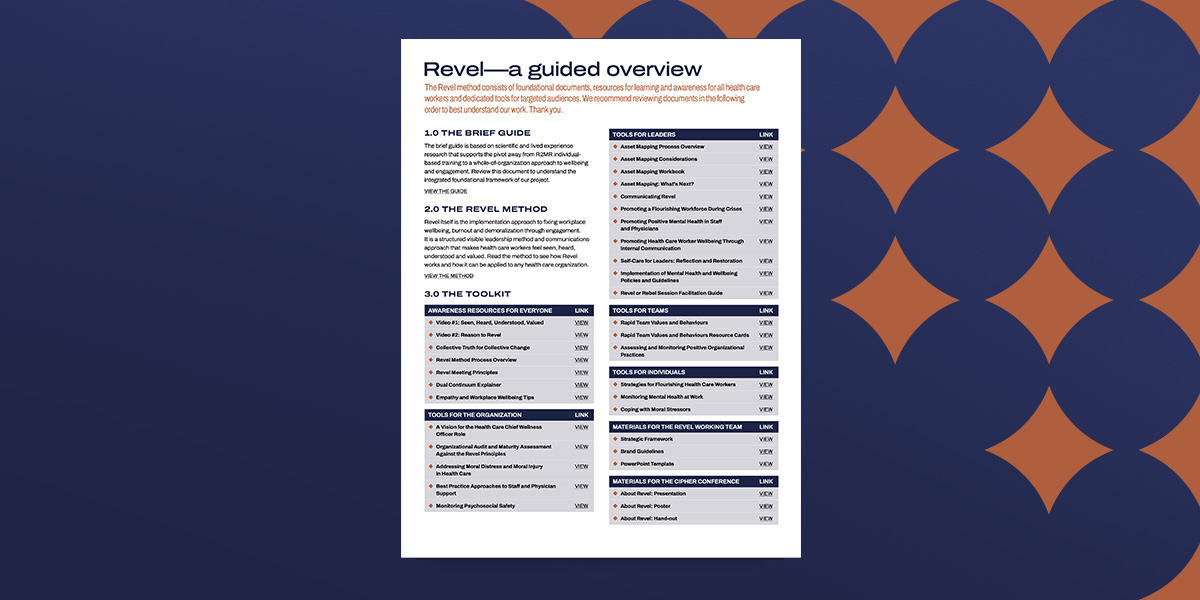
Guided Overview
A summary of all resources, tools and materials created to support Revel.
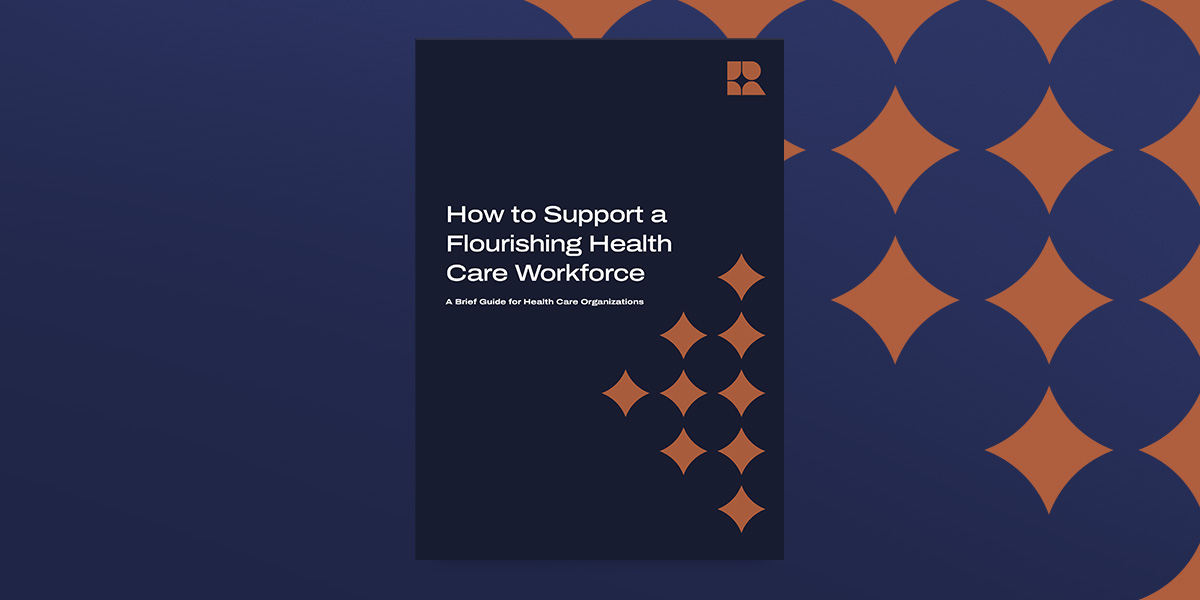
Brief Guide for Health Care Organizations
Foundational framework based on extensive research on how to support a flourishing health care workforce.

Revel Method
Our whole-of-organization empathetic engagement model for health care institutions to improve wellbeing.

Dual Continuum of Mental Wellbeing
Refining the way we assess, define and discuss mental health to remove stigmas and create open conversations.
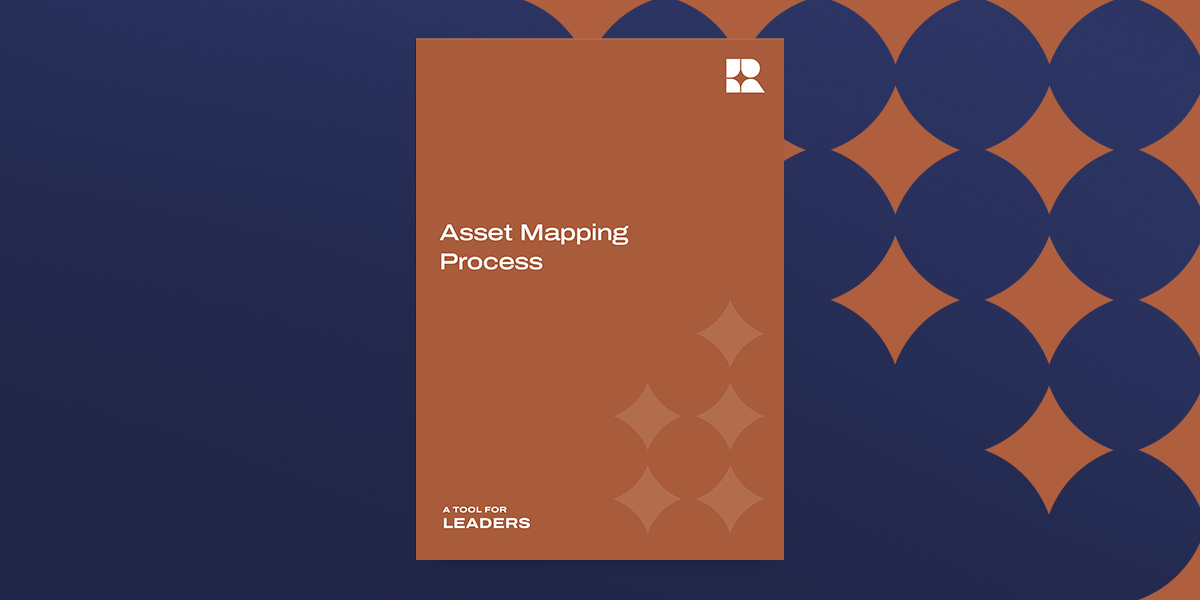
Asset Mapping Process Overview
Review the mental wellbeing resources you offer your staff and physicians to create a central and easy-to-access repository.
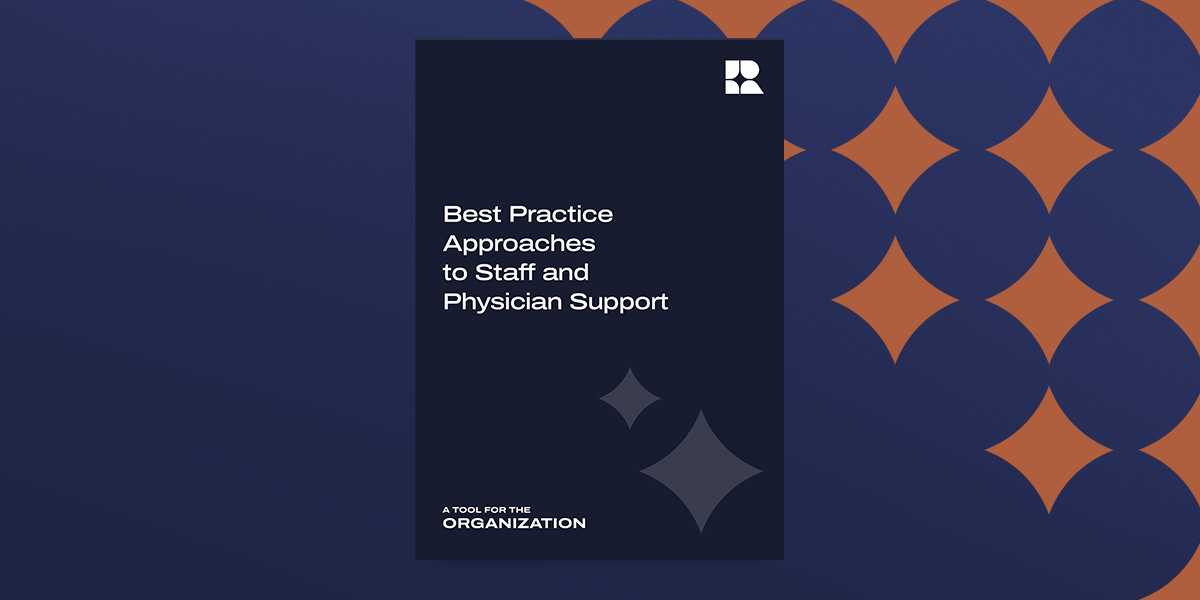
Best Practice Approaches to Staff and Physician Support
Understand and refine your employee assistance program to ensure you’ve chosen the best offering for your institution.
“We want every healthcare worker across Canada to revel at work. We want everybody through this transformative new way of engaging healthcare workers to be understood, seen, valued, and heard within their community”
Hear from Dr. Richardson and Dr. Nazarov about the lessons that Revel learned.
The Revel Method
In our effort to improve workplace conditions, we engaged hundreds of health care workers who shared their invaluable insights and ideas. Their experiences form the bedrock of Revel—a transformative initiative that draws upon the most effective elements of change management processes, staff and physician engagement strategies, compassionate leadership theories and therapeutic methods. The culmination is an open and accountable visible leadership program adaptable to organizations and teams of any size. Revel prioritizes open communication, empathy and the pursuit of achievable goals.
The following resource is currently only available in English.
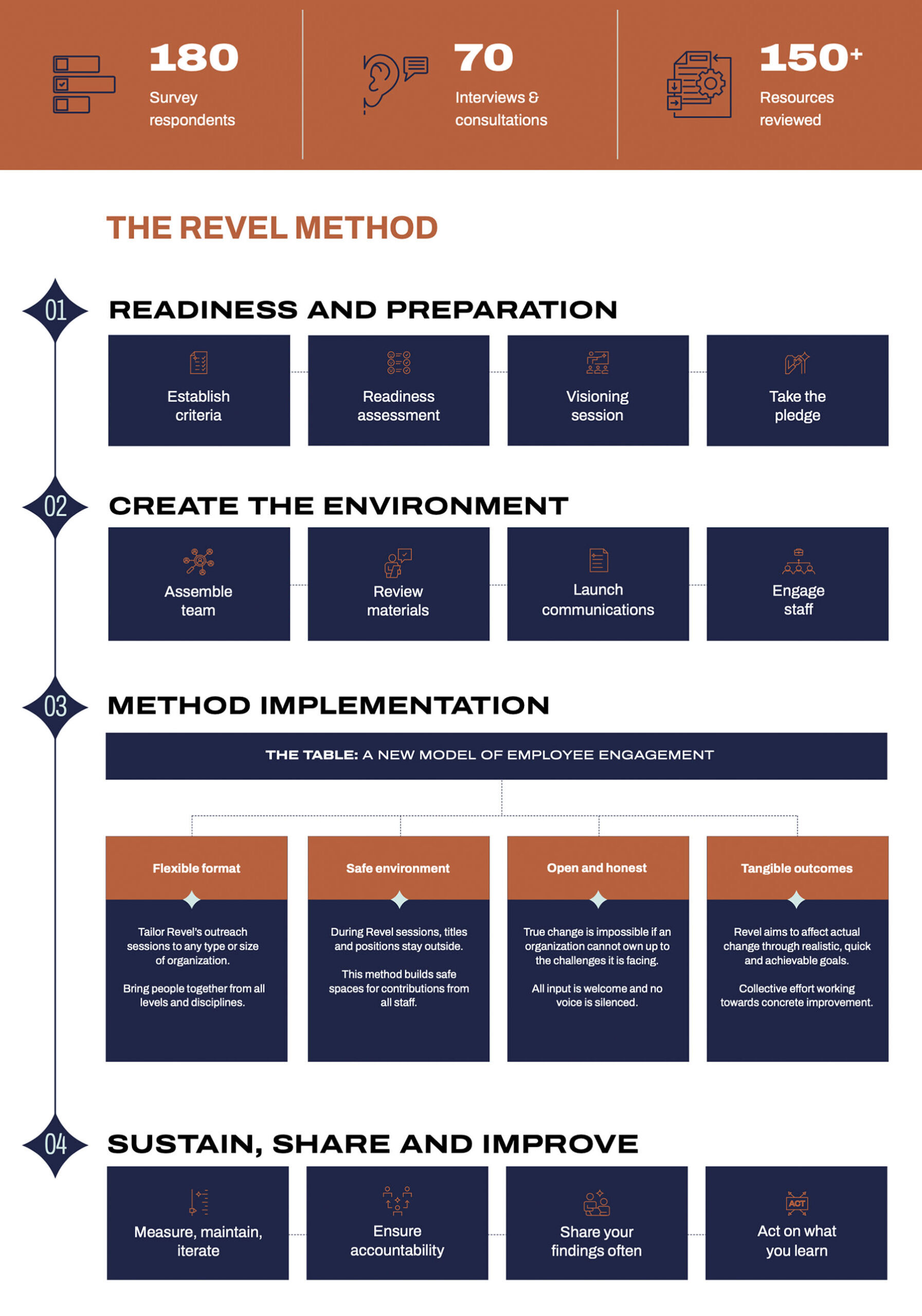
Project Team
Dr. Don Richardson – Principal Investigator
- Medical Director, St. Joseph’s Operational Stress Injury Clinic
- Scientific Director, MacDonald Franklin OSI Research Centre
- Professor, Department of Psychiatry, Schulich School of Medicine & Dentistry, Western University
- Associate Scientist, Lawson Health Research Institute
Dr. Anthony Nazarov – Principal Investigator
- Research Scientist, Department of Psychiatry, Western University
- Associate Scientific Director, MacDonald Franklin OSI Research Centre
- Associate Scientist, Lawson Health Research Institute

